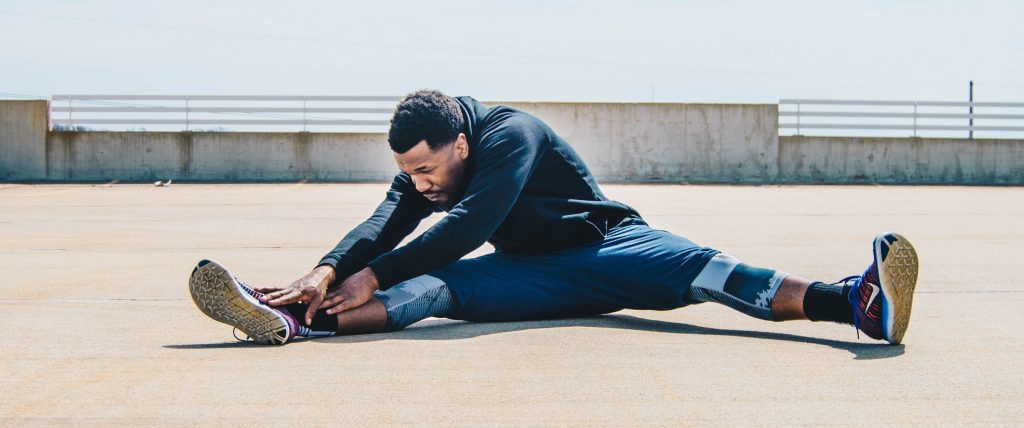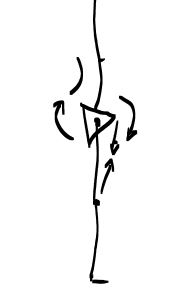
Last week’s blog looked at strength in key muscle groups for runners. This blog is highlighting areas of the body where flexibility is useful at preventing pain associated with running. There has been a lot of research on muscle length / flexibility relative to preventing injuries and the summary is commonly that it doesn’t help. However sometimes the research doesn’t give us the full picture on how to help an individual with pain and that is where having an experienced physio counts. Helping runners return to exercise after pain or injury results in a wealth of experience based knowledge. In relation to muscle length it is that if you don’t have the mobility in the correct places it can lead to injury. An obvious example is a hurdler who tightens up in the hamstring and lacks the flexibility to get the front leg over the bar. The key area for everyday runners to maintain flexibility is in the front of the hip.
The front of the hip / hip flexors includes 3 muscles, one of which is the TFL (tensor fascia lata) that connects to the ITB (iliotibial band). One example of a common runner’s problem is not having enough hip flexor length which can impair the buttock (gluteal) muscle function and lead to the TFL muscle working harder to stabilise the pelvis whilst running. This can then lead to ITB tightness and pain in runners. Another example is tightness in the hip flexors leading to an increased arch in your back. When this combines with the glut’s switching off hip or back pain are common.

Correctly stretching your hip flexors should be comfortable. It is possible to make short lasting improvements in muscle length so if you are tight you need to stretch before you run (despite some research assumptions!). Don’t forget to control the pelvis when stretching.

The best plan is if you have pain then get one of the experienced NU Moves physio’s to assess and determine if that’s what you need to get you back to running pain free.
